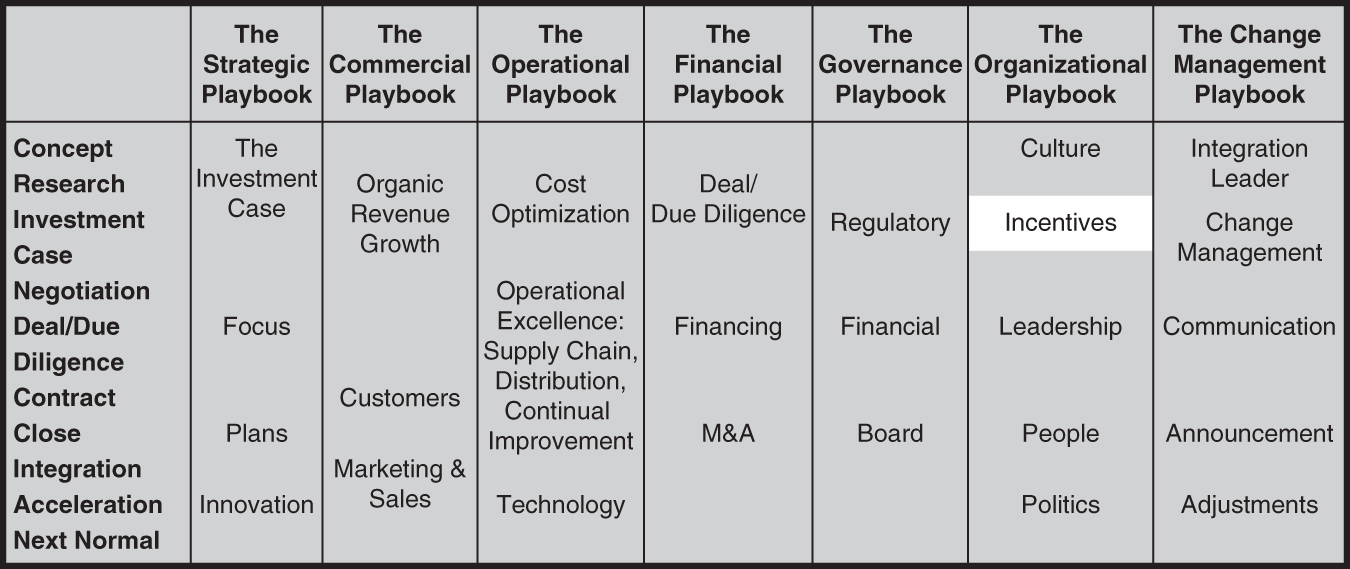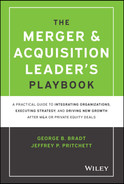CHAPTER 18
Incentives: Show Me How They're Paid and I'll Tell You What They Do

The second component of the organizational playbook is incentives, which feed right into the balance of consequences.
Michael Brown's ABCs of behavior modification provide a framework worth following. ABC stands for antecedent, behavior, consequence. People do things because an antecedent prompts that behavior. They do it again because of the balance of consequences: rewarding or punishing desirable or undesirable behavior.1
It's often hard to modify existing patterns of behavior because those habits have been reinforced by a poor balance of consequences. It's almost guaranteed that people in your organization who persist in doing things you don't want them to do are having their behavior positively reinforced.
If, as an example, employees habitually show up late for meetings, that behavior is likely positively reinforced by avoiding the negative consequence of wasting time for the few that do show up on time.
If you want to change undesirable behavior habits, change the balance of consequences. Make sure you are:
- Positively reinforcing desired behavior
- Discouraging undesirable behavior
If you are not doing this, then change the way you:
- Positively reinforce undesirable behavior
- Discouraging desired behavior
Just as the best way to eliminate recidivism in prison is to keep people from doing things that would land them in prison in the first place, the best way to eliminate undesirable behavior is to make sure it never happens to start with. This is about antecedents and prompting the right behaviors.
This is why it's so important to clarify your desired culture and reinforce it with the antecedents and consequences of behavior.
Theoretically, your mission, vision, objectives, goals, policies, guidelines, plans, and ways of leading and working all provide antecedents that prompt desirable behavior.
Theoretically, your performance management, reward, and recognition systems and practices and everyday leadership provide appropriately positive consequences to desirable behavior and negative consequences to undesirable behavior. Your compensation system is a big part of that—and especially your incentive compensation system.
The general guideline for compensation systems is to give people:
- A base salary and benefits high enough to allow them not to worry about their normal living expenses like rent, food, transportation, and medical
- Short-term incentives or bonuses that provide positive and negative consequences for doing or not doing what you want them to do over the short-term
- Long-term incentives that provide positive and negative consequences for doing or not doing what you want them to do over the long-term
In other words, tie more junior people's incentives to short-term results, middle-managers' incentives to mid-term (annual) results, and senior executives' incentives to long-term value creation.
We could write an entire book on incentives—they are so critical. Be creative and thoughtful and use the various currencies available—equity plans, long-term incentive plans (LTIP), short-term incentive plans (STIP), commission plans, specific function and role plans with a focus on tying the long- and short-term objectives, and the compensation plans together. Watch for intended consequences as people; even great leaders and managers will follow the money—except salespeople. They are different animals. The more you can make your sales compensation system work like a straight commission on sales made, the better it will work.
True story. IBM's top salesman was effectively paid on commission. One year he earned more than the chief executive officer (CEO). The next year they capped his maximum pay. He hit that maximum in 3 months, quit, and founded EDS. He was Ross Perot.
Note
- 1 Bradt, George, 2017, “The ABCs of Changing Undesirable Behavior Habits,” Forbes (November 15).
